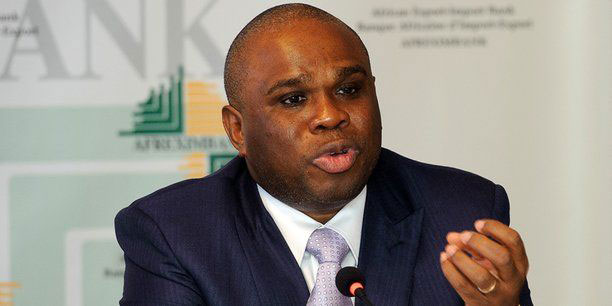
Afreximbank is expected to provide finance to export projects in manufacturing, mining, infrastructure and related ventures
Nairobi, Kenya | ISAAC KHISA | The African Export-Import Bank (Afreximbank) has ditched Nairobi in favour of Kampala to set up its regional headquarter.
Benedict Oramah, the bank’s president, told The Independent in an interview at the end of the 25th Anniversary and Annual General Meeting held in Abuja, Nigeria, from July 11-14, that they expect to conclude negotiations with the government soon.
“We think that by the end of this year, we would have finalised negotiations for setting up the East African branch in Kampala,” he said.
Oramah said the bank’s change of plan follows long winding negotiations with the Kenyan government that did not seem to yield any positive result within the shortest time possible.
He revealed that the proposal in 2015, to have a branch in East Africa’s largest economy was approved at the same time with that of Abidjan, Ivory Coast, which was opened more than two years ago.
“Countries normally make formal requests for us to host a branch there and if it doesn’t meet the requirement, we go to the next one,” he said.
“In Kenya, it took particularly longer to have the agreement signed; it would have been finalised long time ago… So we couldn’t think that we could continue to negotiate and negotiate. We had to go to another country.”
The issues that were under contention in Kenya included granting diplomatic immunity for the bank’s top executives and exempting them from paying local taxes.
Obi Emekekwue, the head of communications at the Afreximbank said the bank is presently looking forward to being allocated space in Kampala and later land to set up the branch.
“The driver for us setting up a branch in Kampala is to move closer to the people we serve in the East African region,” he said.
The bank’s other regional headquarters are in Abuja (Nigeria), Harare (Zimbabwe), Tunis (Tunisia) and Cairo (Egypt).
The bank, established in Abuja, Nigeria in October 1993 by African Governments, African private and institutional investors as well as non-African financial institutions and private investors aims at financing, promoting and expanding intra-African and extra-African trade.
Early in May this year, Frank K. Tumwebaze, the Minister of Information Communication and Technology and National Guidance, said during a media briefing that Cabinet had approved a plan to have Afreximbank hosted in Kampala.
“It (Cabinet) approved establishment of the African Export-Import Bank Regional Office in Uganda (implementation) Bill, 2018,” he said, adding that the bank is going to promote sustainable socio-economic development in the region, with Uganda being unexceptional.
He said Afreximbank is also expected to provide finance to export projects mainly in manufacturing, mining, infrastructure and related ventures.
The bank has in the past 25 years registered a rapid growth in membership, rising from 36 to 50 countries including Uganda.
The new member countries that joined the bank include; Chad, Sao Tome and Principe, Togo, Djibouti, Burundi, Madagascar, Commoros, Eritrea, Central Africa Republic and Equatorial Quinea.
Last year, South Africa became a shareholding country through its Export Credit Insurance Corporation.
The bank has also seen a record growth in shareholding, with significant equity injections from both existing and new shareholders.
From outside Africa, the Russian government made a strategic decision to expand its economic relations with Africa through equity participation in the Bank in December last year. Russia joins China and India as countries with shareholdings in Afreximbank.
Industrialisation Agenda
Currently, the bank is aggressively pursuing a number of initiatives, under its Industrialization Strategy to create industrial capacities and boost value added export production, particularly for African markets, including creation of industrial parks and special economic zones, with projects valued at US$2bn already underway in Gabon, Ivory Coast, Togo and Nigeria, and plans for Rwanda, Malawi and Chad near approval stages.
Meanwhile, the Cairo-based bank recorded a 25 % growth in revenues to reach $645 million last year, driven by healthy interest income on average assets of about $14 billion, of which about 70 per cent was loans and advances.
The net income as a result rose by 34 % to reach a new record of $220 million. Similarly, the bank’s liquidity remained strong, with cash and due from banks reaching $3.2 billion, up 153 % from $1.3 billion in 2016, while liquidity cover ratio was 185%, above the target of 105%.
Consequently, the bank’s Board of Directors have proposed a dividend pay-out of $57.53 million to shareholders, representing a 51 % increase on the $37.96 million declared in the previous year, according to Ndagijimana Uzziel, Chairman of the General Meeting of Shareholders and Minister of Finance of Rwanda.
Countries on the list of Afreximbank shareholding
Angola, Benin, Botswana, Burkina Faso, Burundi, Cameroon, Cape Verde, Chad, Comoros, Côte d’Ivoire, Democratic Republic of Congo, Djibouti, Egypt, Ethiopia, Gabon, Gambia, Ghana, Guinea, Guinea Bissau, Kenya, and Lesotho. Others are Liberia, Madagascar, Malawi, Mali, Mauritania, Mauritius, Morocco, Mozambique, Namibia, Niger, Nigeria, Republic of Congo, Rwanda, Senegal, Seychelles, Sierra Leone, Sao Tome and Principe, South Africa, South Sudan, Sudan, Tanzania, Togo, Tunisia, Uganda, Zambia and Zimbabwe.
 The Independent Uganda: You get the Truth we Pay the Price
The Independent Uganda: You get the Truth we Pay the Price





